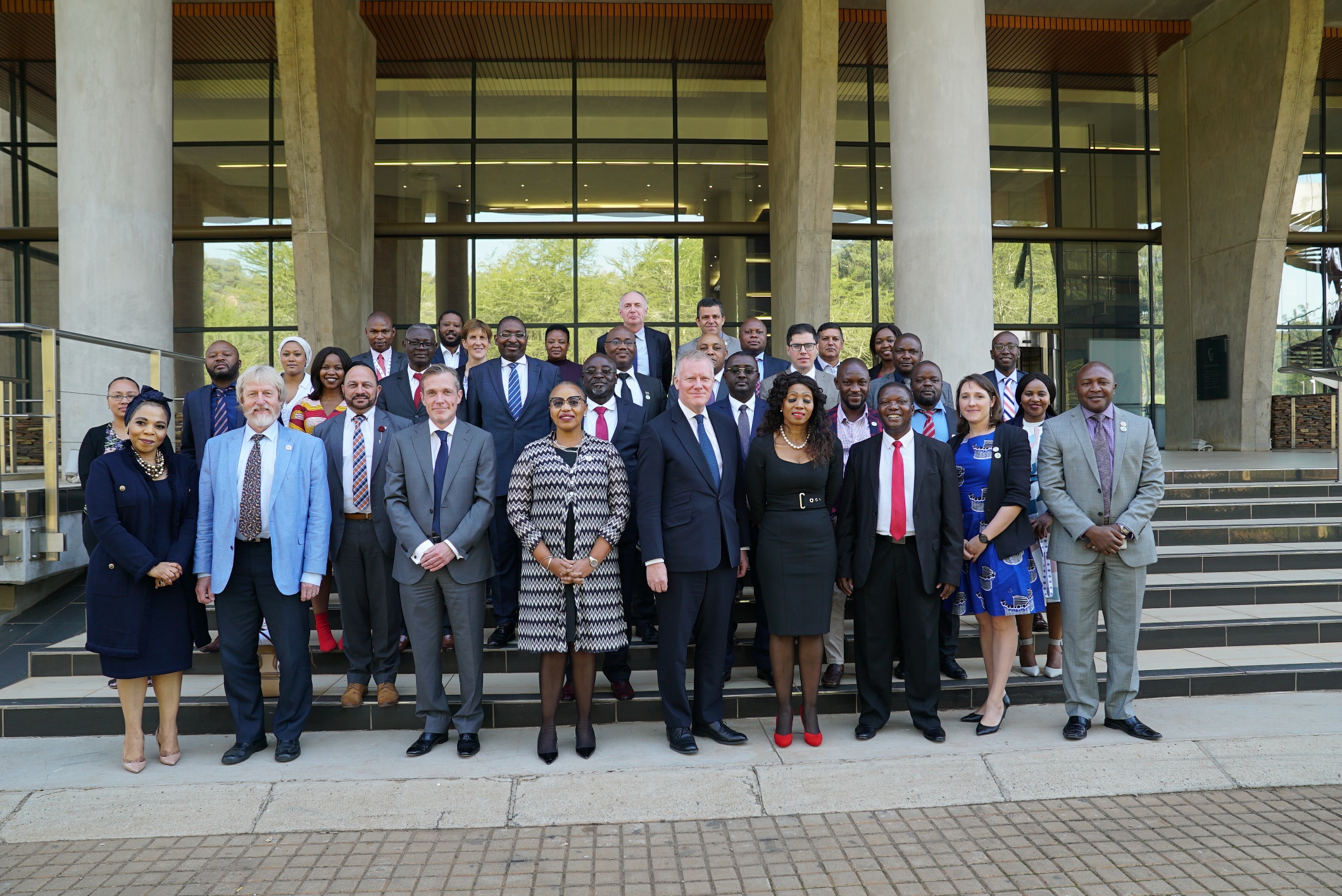African nations make up over a quarter of all member states that have ratified the UN Convention on the Law of the Sea. The African Regional Working group consistently takes a leadership role in International Seabed Authority negotiations and they are among the leading voices pushing for a fair and equitable financial model. Yet for all their involvement in ISA negotiations, the Africa Group is currently the only regional group whose member states have no contractors that hold exploration licenses for deep-sea mineral exploitation in the Area.
The absence of mining contractors within the region creates what some delegates believe is an unbalanced position. African nations stand to benefit from financial disbursements through the Common Heritage Principle, but not directly profit for exploitation in the Area through commercial deep-sea mining contractors. This is particularly surprising as African nations take a lead role in other offshore extractive industries, most notably offshore diamond mining, which requires many of the same technical and scientific capabilities as deep-sea mining.
The Africa Deep Seabed Resources program was created, in part, to rectify this situation. This ISA-sponsored program is designed to increase capacity within Africa and help African member states develop not only their own seabed resources, but establish claims in areas beyond national jurisdiction and help unlock Africa’s Blue Economy.
“As an African, I am obliged to state that Slavery and colonialism had a devastating impact on the African continent and other developing countries.” says High Commissioner Lumka Yengeni, Permanent Representative of the Republic of South Africa to the International Seabed Authority and President of the ISA Council for the 25th Session, in her opening statement to the ADSR Pretoria meeting. “These countries, which were rich in land based mineral resources, were looted by the Colonial powers and the consequences and impact of that is still being felt today. It manifests itself in high unemployment, high rates of illiteracy, low levels of skills and technical capacity because the mineral wealth of these countries has over centuries been removed and in some cases, still is. None of us want commercial activity in the Area to make existing problems worse! Rather, we endeavour to ensure through our work the common heritage of mankind and equitable benefit sharing actually changes the lives of the people it was intended to benefit.”
Among the chief complaints in discussing the composition of the Legal and Technical Committee at the first part of the 26th session of the ISA, was the acknowledgement that equitable geographic distribution had to be balanced against expertise. The expertise around deep-sea mining is largely centered in a few major geographic regions where legacy institutions are centered, creating a real need for capacity building across regions in order to ensure that the LTC is geographically representative of the member states. To help meet that need, the ISA launched a program last year to invite experts from African member states to participate in a two-month training program at the ISA headquarters in Kingston. The first two participants, arrived just as the Covid-19 pandemic erupted across the world.
“The sustainable development of deep seabed minerals could significantly contribute to leveraging the Blue Economy for all nations, particularly for developing countries but this will require addressing specific challenges in relation to technology, data and information,” said ISA Secretary General Michael Lodge.
Though the International Seabed Authority intended to sponsor 5 workshops throughout 2019 and 2020, the Covid-19 pandemic has brought those plans to a halt as entire nations shutter their borders and enter a prolonged period of social distancing. Only two workshops have so far been conducted and the remaining three are postponed until large gatherings are again possible. A representative from the ISA indicated that they are still working hard, though largely remotely, to meet the ambitious goals of the project, but declined to comment on how the outbreak would impact future meetings.
Featured Photo: Participants of the ASDR workshop in Pretoria, South Africa. Photo courtesy ISA.
